THE DEBATE CLUB • September 2020
Should travel be planned or spontaneous?
Are you the kind of traveller who’s plotted every detail of your holiday before you’ve even hit the plane? Or are you the type who picks your destination by looking up at the airport screens? Below, two top-tier travel writers champion their chosen styles. But whose way do you prefer?
Spontaneity is great, as long as it’s meticulously planned
Says who: ‘Grumpy’ British travel journo, David Whitley
Few things are as breathtakingly beautiful as a perfectly completed itinerary. Part of it is aesthetics – days and times in bold, booking reference numbers in capitals, phone numbers and addresses in brackets, expected driving times in italics. But much of it is smug self-satisfaction. I’ll not be going to the wrong airport terminal because I’ve put ‘T2’ in the flight details section, and the satnav’s not going to lead me on a wild goose chase because I’ve copied and pasted the driving directions from the hotel’s website.
All of this needs printing out, of course. What if the phone battery dies? Or the border policeman is an aggressive luddite? Not a problem when you’ve got about 20 pages of mercilessly detailed holiday information bulking up your bag.
Putting more research into a holiday itinerary than Nasa put into the moon landings isn’t just about being an enormous fun magnet at parties, though. It’s about massively increasing capacity. Once I’m away, I’d sooner be squeezing in a bonus visit to a museum about globes or the world’s biggest miniature railway than sorting out tedious admin. And if, prior to departure, that means spending an evening putting detail into a Word document rather than watching an episode of Death in Paradise, so be it.
My travel planning habit that induces the most eye-rolling – colour-coded Google Maps – also wins the most converts. Points of interest get saved – red for restaurants, blue for hotels, green for bars, yellow for attractions – and I can tackle them in rough geographical order.
“The spontaneity fetishists are welcome to see nothing, do nothing and wander around in a permamuddle.”
But, more importantly, when I’m hungry, I instantly know all the good options within a couple of blocks of where I’m standing. If somewhere looks more interesting on the way, then fabulous, let’s try that instead. But at least I’ve got a target to aim for instead of haplessly dithering until I’m utterly ravenous.
This is the key to planning properly – it’s about giving yourself a strong baseline and guaranteeing yourself a trip that’s seven out of ten as a bare minimum. The spontaneity fetishists are welcome to see nothing, do nothing and wander around in a permamuddle. The only sin of the laughably meticulous is not being prepared to tear up the plan if something better comes along.
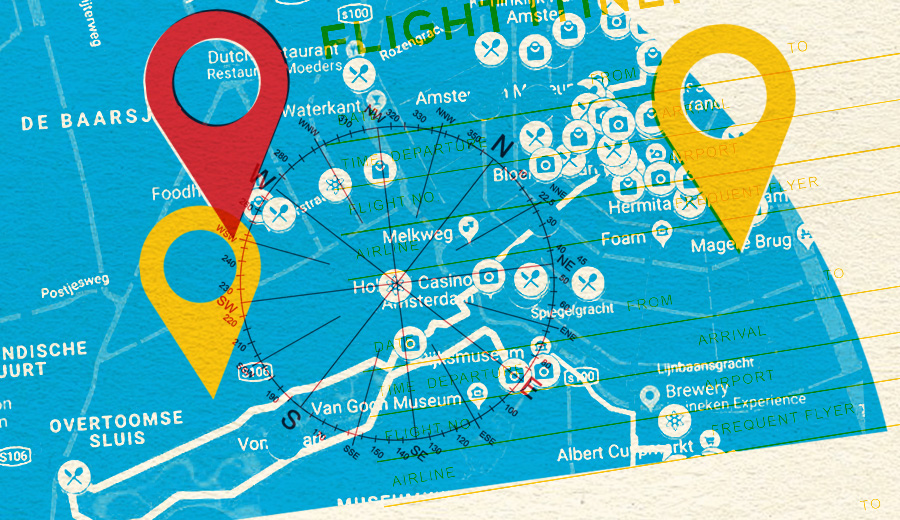
Planning gets in the way of magic
Says who: New York based travel writer, Meena Thiruvengadam
Many of my most memorable travel experiences are ones I didn’t plan for — dinner at the home of Iceland’s president in Reykjavik, a wild and unexpected night out in Toronto after a flight cancellation, discovering my new favourite spirit with the bottlers of Kentucky-based Hypnotiq when a political rally derailed my plans to visit the state’s better known distillery, Maker’s Mark.
The truth of the matter is, travel plans tend to reform into something better once they’re broken, so what’s the point in caring about them in the first place?
Sure, it’s taken me a while to be quite this go-with-the-flow, but I’ve found the positive results are overwhelming. Without a to-do list, there’s less pressure to see everything and less disappointment when things don’t work out. It means, at the end of a trip, I won’t look down at a list and feel bad about the things I didn’t manage to tick off it.
“Planning can help travellers with anxiety, but over-planning is typically a symptom of anxiety.”
For an entirely pressure-free to-do list, put one thing on it: a few hours of aimless meandering. It’s an approach that once led me to a Depeche Mode fan bar in Tallinn, dog sledding on the edge of Arctic Canada, and into that seat on the Icelandic President’s dinner table.
Planning can help travellers with anxiety, but over-planning is typically a symptom of anxiety, and one that, ironically, makes it worse. A spontaneous and flexible disposition means you’re more likely to take advantage of last-minute deals and invitations with a sense of excitement, not trepidation. Spontaneity and flexibility can make the difference between a pleasant holiday and an experience that ignites a fire in your soul.
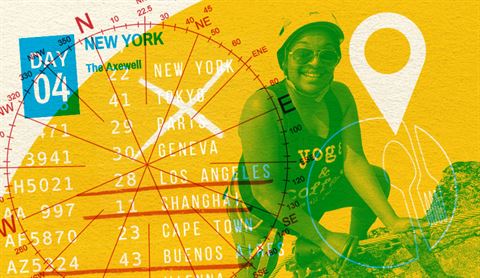
My sense of empowerment comes from booking a ticket and leaving the rest to fate. I have the freedom to wake up, tune into how I’m feeling and what I want, and just go. While many might say a pair of headphones and good suitcase are their favourite travel items, refundable hotel rooms and changeable plane and rail tickets are mine. Even now, I’m still trawling Skyscanner for last-minute flight deals to anywhere and everywhere.
Over the years, I’ve become far less hesitant to change course while travelling, to the point where I prefer it. And it’s a good lesson to learn not just about travel but in life. True spontaneity ensures you never quite know where you’ll end up. For me, that’s life’s great adventure.
Who do you agree with more, David or Meena? Let us know your opinion at theclub@cedarcom.co.uk
This article has been tagged Opinion, Travel Tips
More from previous issues
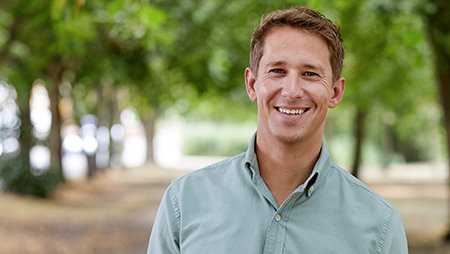
My Club: the paint entrepreneur
Lucas London launched Lick at the start of lockdown to bring some much-needed colour to the world
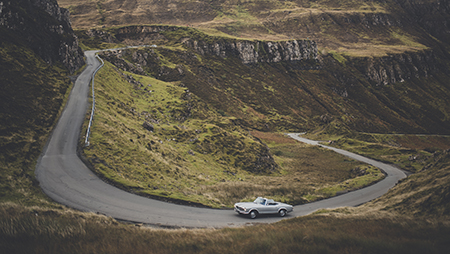
Eight epic European drives: Amy Shore
The Nikon brand ambassador shares scenic shots of her favourite stretches of open road
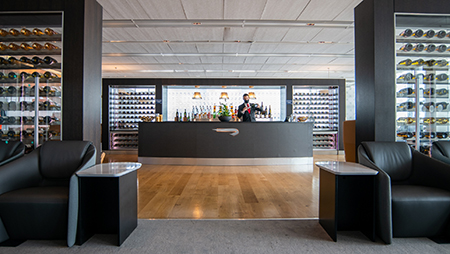
The Gurus: welcome to the lounges
Meet the team tasked with transforming BA lounges into safe, sophisticated and seamlessly serviced spaces

Travel quiz: do you know your aviation lingo?
Consider yourself a bit of an AV whizz? Put your knowledge to the test with our cryptic quiz